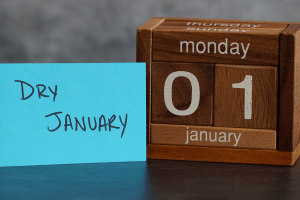
Statement on Racial Equity and Inclusion in Biomedical Research - and the NIH UNITE Program
April is Alcohol Awareness Month. NIAAA supports research on health topics that have an impact on almost every family and community in the United States. Therefore, diversity in the alcohol research workforce is important because it brings new perspectives, builds knowledge, and fosters innovation increasing the likelihood of successful research outcomes. Please note this new program at NIH.
Issues of racial equity and inclusion weigh heavily on me as I contemplate the future of alcohol research.
While NIAAA has been and is committed to addressing issues of racial equity and inclusion at all levels, these concerns, even though sincere and long-standing, ring hollow if they are not supported by action – bold, proactive, and committed action to ending racial inequities across the biomedical research enterprise. And let us be clear that our circumstances require transformative changes in our biomedical research ecosystem.
That’s why I am very pleased today to announce my enthusiastic and full-fledged support of, and commitment to, the NIH UNITE program. UNITE is the new initiative to address structural racism at NIH, the institutions we support, and anywhere NIH research activities take place. For more information on the UNITE program and NIH’s efforts to support racial inclusion and equity, please visit www.nih.gov/ending-structural-racism. We are already taking steps to participate in and contribute to the action items outlined by UNITE.
The UNITE program aligns well with the efforts we have made – and continue to make – at NIAAA to promote equity, diversity, and inclusion in alcohol research. Recently, NIAAA established an Equity, Diversity, and Inclusion Steering Committee to inform our efforts in these areas and explore all the manifestations of inequity. To make the foundational changes that are needed, we will focus on the following domains: improving the NIAAA intramural and extramural workplace and culture, increasing diversity and equity in the NIAAA scientific and administrative workforce, and enhancing the NIAAA intramural and extramural scientific research portfolio.
Looking ahead, we are dedicated to expanding opportunities and pathways for researchers, clinicians, and administrators from diverse and underserved communities. Because our alcohol research community is so focused and dedicated to the sustainability of our field, I believe we have a unique opportunity to expand opportunities for future alcohol researchers and administrators. Let’s remember, a focus on equity does not apply solely to those who work on our purely scientific endeavors, but to all of us who support this critical biomedical enterprise. We all have a role to play.
I will keep you apprised of our efforts as we move forward and look forward to continuing on this transformative journey with you.
Best regards,
George F. Koob, Ph.D.
NIAAA Director
Need Help for an Alcohol Problem?
If you’re having an emergency, call 911. If you are having suicidal thoughts, call 911, go to the nearest emergency room or call the toll-free, 24-hour National Suicide Prevention Lifeline at 1-800-273-TALK (8255) to help you through this difficult time.
The NIAAA Alcohol Treatment Navigator can help you recognize and find high quality treatment for alcohol use disorder. If you drink excessively, seek medical help to plan a safe recovery as sudden abstinence can be life threatening. NIAAA’s Rethinking Drinking can help you assess your drinking habits and provides information to help you cut back or stop drinking.







